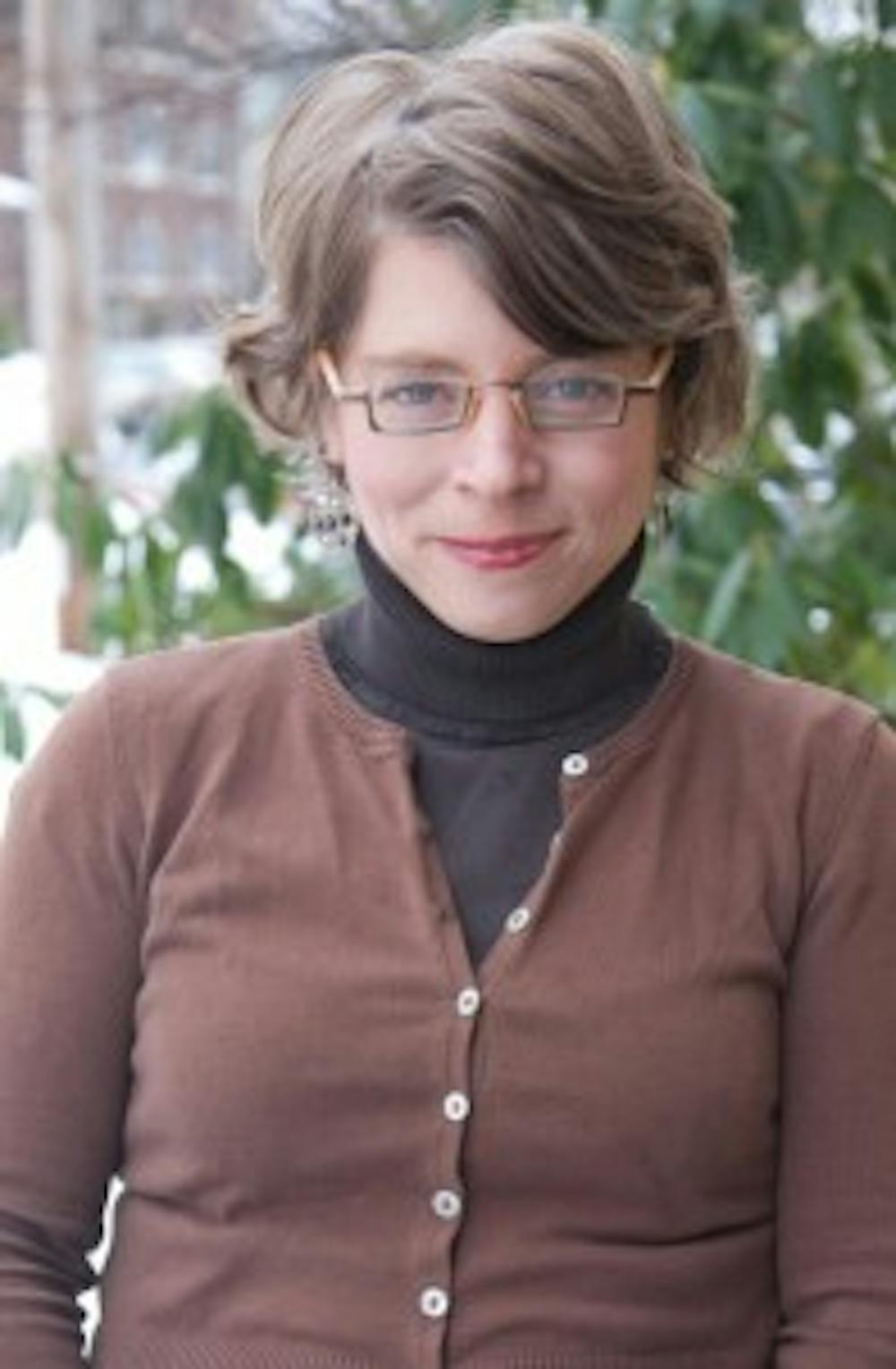Jayme Coxx’s first experience performing in drag was on a dare from a friend 13 years ago.
Since then, the practice has gone from something Coxx never thought he would enjoy to something beyond his own amusement.
“Of course drag performance is something we all enjoy, but it’s much more than that,” Coxx said. “Gender, female, male, gay, straight aren’t solid words – they blend. Doing this makes us a face and a voice for people who are scared to do things that bend gender.”
‘Gender Bender’ was the theme of the Buffalo Humanities Festival at Buffalo State College this Saturday, where Coxx was one of many performers, artists, academics and writers that attempted to break down common perceptions of gender.
The UB Humanities Institute partnered with SUNY Buffalo State, Canisius College, SUNY Fredonia and Niagara University to organize the festival. The keynote speaker was author Jill Lepore, who spoke on her book The Secret History of Wonder Woman the night before the festival at the Albright-Knox Art Gallery.
The book explores gender and femininity through one of the most well known female superheroes and her transcendence of typical female gender roles made the theme seem fitting.
According to Erik R. Seeman, history professor and director of the UB Humanities Institute, there couldn’t have been a better theme for this particular year.
“We really got lucky,” Seeman said. “We’re at a moment where talking about this is extremely important. There’s more gender bending things on the news than we could have expected.”
The increased awareness of gender issues brings about a need to understand them. Seeman thinks the best way to do this is through the humanities.
“History, literature, art … the humanities – they’re all about the belief that nothing is natural, humans create everything,” Seeman said. “Experiencing Gender Bender through the humanities is the perfect alignment because both are based on change and contestation.”
Patrons of the festival had opportunities to experience gender bending through the lens of a variety of the humanities. Speakers occupied the SUNY Buffalo State campus, exploring topics from Cyrano De Bergerac to #BlackGirlsMatter.
A viewing room played seven short films on a loop for the entire duration of the festival. These films ranged from topics of female filmmakers to Native American beliefs on femininity and masculinity.
Mahathi Gottumukkala, a junior economics and English major at UB, came to the festival looking forward to a performance and discussion exploring gender through Shakespeare’s Twelfth Night.
“I took a seminar on Twelfth Night so I love the play,” Gottumukkala said. “And [gender] is an important theme.”
The play was written at a time where all actors were male – men portrayed women. This portion of the humanities festival explored how variations in the genders of those who play the roles in Twelfth Night today affect the play and the actors’ craft.
There was a performance of a scene with genders matching the actual text: two females playing two females. This was followed with two men portraying these same female roles.
Chris Hatch, an actor who played the character of Orsino in Delaware Park’s production of Shakespeare’s Twelfth Night this past summer, played the character of Olivia in the second performance.
At first it was not easy for Hatch to play a woman.
“I was very concerned in the beginning with not feeding any stereotypes of women,” Hatch said. “Anything I did felt like it could be seen as stereotypical so I had a sort of block. Finally I realized that she was a character … and that I needed to play this character like any other character.”
Jordan Louis Fischer, the actor who played the character of Viola both in this summer’s Shakespeare in the Park and the second performance at the festival, described a similar hardship he has noticed in straight men trying to play the role of gay men.
“There is such a stigma for straight guys around playing gay characters,” Fischer said. “They’re like, ‘Oh no I can’t play a gay guy,’ but they have to realize it isn’t about playing a gay man – it’s about playing a human being.”
Sophia McKeone is a features staff writer. Features desk can be reached at features@ubspectrum.com





